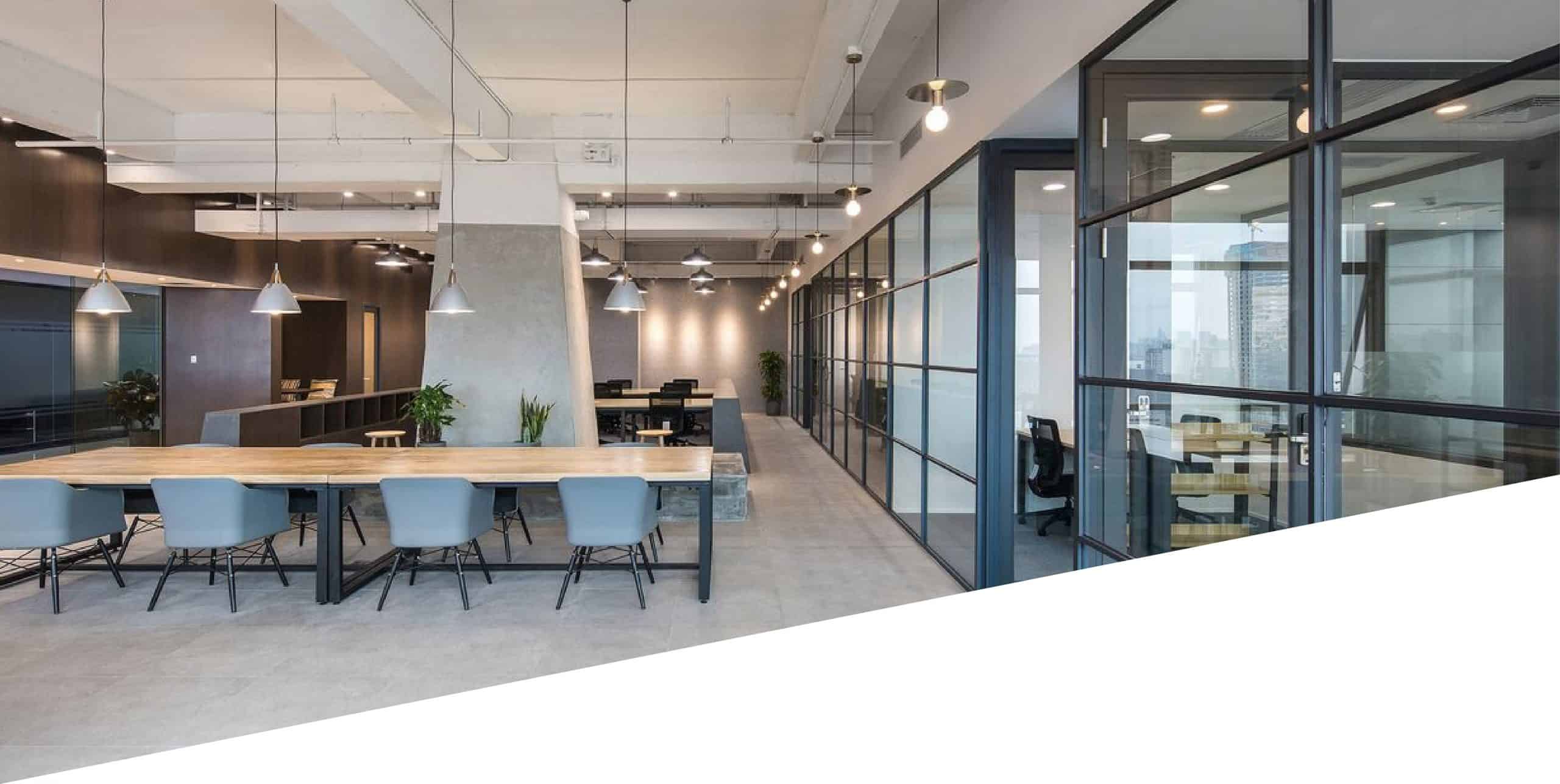How will the Pandemic change the role of offices?
Published: 16.02.21
The Coronavirus Pandemic has changed how employees and businesses around the world work. The days of working nine to five in corporate office blocks are, for now at least, a thing of the past. The changes the pandemic has brought about have left office buildings empty, high streets a ghost town, and changed how the average employee views their work-life balance. There are differing views about how the pandemic will change cities and towns; some believe wholesale and long-lasting changes are required, whereas others view it as a short-term adjustment.
Regardless of how these changes occur, planning has a critical role in city development, in both the short and long-term. Changes such as flexible working were beginning to pick up pace before the pandemic, and these trends have now been accelerated by the ‘new working practices that we have been forced to take up.
Alternative uses for commercial spaces.
There are a range of ways that office and employment spaces can be repurposed. Businesses can repurpose some of their own office spaces by creating networking areas, gyms, libraries, and other amenities for their staff to use.
With regards to more permanent conversions that may require planning permission, organisations will need to consider the employment land retention policies of their local area. Factors such as the condition of the premises, the size of the units, any existing usage limitations and the suitability of the location will all be factored in by the local authorities when considering the application.
‘If planning permission is attained, offices could be converted for a range of purposes including retail, professional services or even hospitality venues.’
When it comes to converting a commercial building for residential use, the government has brought forwards new permitted development rights that will allow these spaces to be repurposed. Class ZA, for example, allows them to be demolished to make space for a residential property, provided the footprint of the new building is no larger than the building it is replacing. The government is currently consulting on permitted rights for the change of use of Class E ‘Commercial, Business and Service’ properties to residential use.
Renaissance of the suburbs.
A sudden shift to remote working has prompted employees all around the world to reconsider their work-life balance. Working from home during the pandemic has given employees more time to spend with their families and in their own homes, rather than commuting to and from the office.
This sudden shift in employee desire is likely to bring forward a renaissance of suburbs. We believe that the suburbs will get revitalised as employees move out of the city centres, with opportunities beginning to spring up to allow people to work closer to home.
This move will be driven by a long-term shift towards more flexible working arrangements, supported by local co-working offices, new amenities, and improved infrastructure that supports home working.
A look to the future.
Whilst it might currently feel like the entire world is in for the long haul fighting against the pandemic, it won’t last forever. Once the world has been able to return to some semblance of normality, office spaces will still have a place, even if their role in everyday life has changed.
‘Whilst transactions involving central London office spaces, stores and other retail sites were down 30% in 2020, the start of a recovery was evident in the last quarter. This last quarter alone was responsible for investments totalling £4.5 billion, representing half of the year’s total volume.’
Going forward in 2021, the pent-up demand from investors, Brexit finalised and the rollout of the vaccine, will give the market a good chance of recovering over the next twelve months.
Regardless of exactly how office spaces are used in the post-pandemic world, there are a great many reasons as to why city and town centres are a great destination for businesses and employees. These regions are bustling hubs of activity, with plenty to draw people in. Businesses looking to move or invest in these areas should have confidence in the office market’s resilience and look forward to a bright future.


